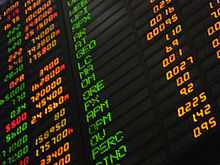Noisy market hypothesis
In finance, the noisy market hypothesis contrasts the efficient-market hypothesis in that it claims that the prices of securities are not always the best estimate of the true underlying value of the firm. It argues that prices can be influenced by speculators and momentum traders, as well as by insiders and institutions that often buy and sell stocks for reasons unrelated to fundamental value, such as for diversification, liquidity and taxes. These temporary shocks referred to as "noise" can obscure the true value of securities and may result in mispricing of these securities for many years.[1][2]
References
- ↑ Bodie, Z., Kane, A. and Marcus, A. J. Essentials of Investments, McGraw Hill Irwin, 2013, Chapter 8. ISBN 0078034698
- ↑ The Noisy Market Hypothesis, Wall Street Journal, Jeremy Siegel, June 14, 2006
See also
